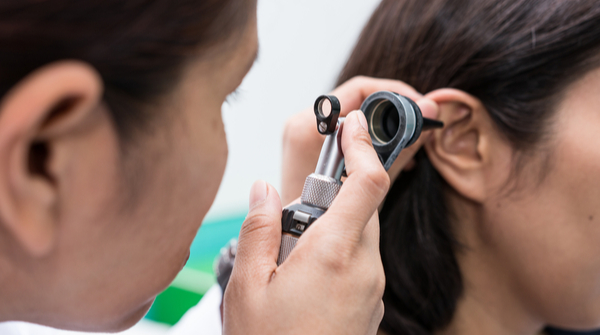When people talk about diabetes and the complications associated with the condition, they generally speak about nerve damage, eye problems, and heart diseases. However, recent studies have shown an unusual relationship between diabetes and hearing problems. These studies indicate that people with diabetes are twice as prone to hearing loss as people living without diabetes. On World Hearing Day, let us examine the relationship between diabetes and hearing loss.

How are Diabetes and Hearing Linked?

Like in any other body part, the hair cells inside the ear have a lot to do with blood circulation and overall well-being. These hair cells are responsible for translating the noise captured by the ear into electronic impulses. These impulses are then sent to the auditory nerve to the brain to interpret as a recognizable sound. These sensory hair cells, also known as stereocilia, do not regenerate. The hearing is, hence, parmanently affected. Although, a hearing screening is required to determine the amount of hearing loss. The resulting hearing loss can be treated with the help of hearing devices.
Although studies have shown that people with Type 1 and Type 2 diabetes have experienced hearing loss, it is difficult to determine this relationship. Multiple theories revolve around diabetes and hearing. One of the theories states that prolonged levels of high sugar cause damage to blood vessels, including the small ones in the ear, thereby causing hearing loss. Another reason that could be the cause of this link is nerve damage. There is a possibility that high sugar levels cause damage to the auditory nerves leading to loss of hearing.
Diabetes and Hearing Loss: What are the signs?
The loss of hearing is a gradual process and is difficult to notice to such an extent that the brain could be compensating for the sounds one might not be able to hear. Therefore, it is essential to identify the signs of hearing loss in order to take preventive steps.
The signs of hearing loss are:
- Frequently asking people to repeat
- Listening to audio at a volume level that is uncomfortable for others
- Difficulty in listening to a conversation
- Experiencing difficulty in hearing things in a loud place
- Frequently hearing rushing or ringing sounds
If one is experiencing either of the signs mentioned above, it is essential to go for a hearing test.
How to Break the Link Between Diabetes and Hearing Loss?
Although the cause of the relationship between diabetes and hearing loss is yet to be proven, effective diabetes management can help break this link. Here are a few tips to protect your hearing by managing diabetes:
1. Managing the blood sugar levels
Manage your blood sugar levels by making lifestyle changes to your daily routine. Meditation, diet, and exercise are important for reducing the complications of diabetes, including hearing loss. It is important to remember that regular testing of blood sugar levels is as important for diabetics as a healthy lifestyle regime.
2. Eating a healthy diet
Another essential method to break the relationship between diabetes and hearing loss is eating a healthy diet. In fact, research has shown that a varied healthy diet that involves limited fat and salt can protect you from hearing loss. Therefore, include a lot of veggies, fruits, and fluids in your diet.
3. Reduce noise exposure
Wear earplugs or cover your ears whenever you are exposed to loud noises. Ideally, human ears can be exposed to noises that are at a maximum of 85 decibels or below. This is equivalent to the noise of a blow dryer or kitchen blender. One of the best ways to prevent hearing loss is to avoid going to noisy places. Another important thing to be kept in mind is to lower the volume of radios, televisions, and tablets by half or less than the total volume.
4. Avoid medications that raise the harm of hearing
Certain medications that are ototoxic in nature can impair hearing and affect your ears in the long run. There are about 200 medications with temporary or permanent ototoxic effects. Therefore, before taking any medication, ask your doctor or pharmacist about the same.
5. Do not put foreign objects to clean your ear
Although cleaning of ears is recommended, it should be done gently and in the outside area of your ear. Do not put a cotton swab or any foreign object inside your ear canal to remove earwax.
6. Go for a regular hearing screening
It is important to go for regular hearing screenings. This will help you keep a check on the condition of your ear and prevent unpleasant news.
Read More: Diabetic Macular Edema: Symptoms, Treatment & Prevention
World Hearing Day is celebrated to raise awareness on preventing hearing loss and promoting hearing care worldwide. On this day, let us all pledge to manage our sugar levels and monitor them regularly with the help of a glucometer to avoid further complications.
Download the BeatO App to learn more about diabetes and the complications associated with it. Moreover, connect with BeatO Health Coaches to manage and control your blood sugar levels.




